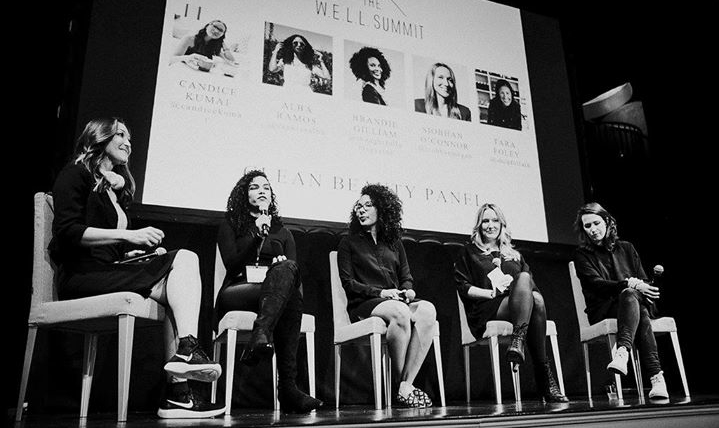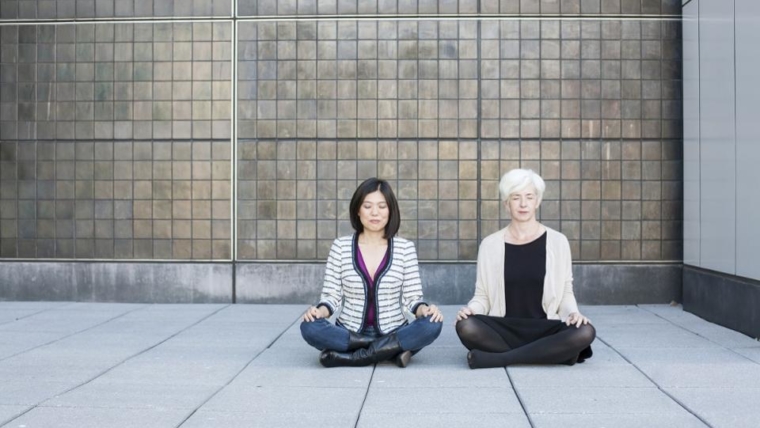
Being plus-size tells you a lot about other people’s assumptions. Often we become screens to project onto, an empty canvas to paint upon. As an overweight person, I’ve frequently encountered jarringly presumptive questions, offered up unprompted, by loved ones and strangers alike. When did you start eating your feelings? You know, you’re eating yourself to an early grave. Aren’t you worried about your health? Think about what a knockout you’d be if you just lost some weight! Have you tried Paleo? Keto? South Beach?
While those constant questions don’t always come from an ill-intended place, they send a powerful message nevertheless. And years of being on the receiving end of such sunny interrogations add up. Fat bodies, we learn, are proof that we are, in turn, unlovable, unattractive, sometimes pathological, and nearly always doomed to an early grave.
We all hear constantly about the health risks of fatness. We watch stories of sad and limited fat lives on shows like This Is Us and My 600 Pound Life, then watch what we assume to be the universal triumph of weight loss in shows like Revenge Body and The Biggest Loser. Those stories disproportionately center around mainstream narratives of what it’s like to be fat, which makes me wonder how many actually fat people have a hand in creating these shows. Nevertheless, those stories often form the basis for what thinner people expect fat lives to be. Indeed, many of these shows depict fat lives as a parade of humiliation and failure. In many of these stories, characters’ fat bodies signal a defect in their character or work ethic, a fundamental brokenness whose repair will be symbolized only and always by weight loss. So many of those stories are houses of cards, built on insidious, deeply judgmental assumptions about fat people’s lives. But like so many assumptions about lives we have not lived, these foregone conclusions about fat people’s lives are flat and incomplete.
What no one talks about are the gifts of being fat.
So many people spend their lives terrified of getting fat—afraid not only for their health but for what would become of their social lives, love lives, job prospects, and more. For many, imagining a fatter self is as impossible and disheartening as imagining their own deaths. A 2006 survey conducted by Yale University’s Rudd Center found that 46% of 4,283 participants would rather give up a year of their lives than be fat, 15% were willing to give up a decade, and 14% would rather be an alcoholic than be fat.
My body is their nightmare. For me, it’s my liberation.
Yes, there are challenges to living in a fat body. But there’s something exquisite and so intensely freeing about realizing that I am living in that imagined worst-case scenario—and not only have I survived it, I’m doing great. I have fantastic friends and a dream job; I date attractive and interesting people. I have crossed the rubicon, and the terrible life that is so often imagined for me simply hasn’t materialized. The “worst” has happened, and I’m fine. What an extraordinary gift, to feel this resilient, this strong, and this at ease. That’s a story that doesn’t often get told.
Yes, bias and judgments persist. And it’s precisely those pervasive, harsh, intransigent attitudes that make embracing my fat body so extraordinarily liberating.
For years, like so many fat people before me, I endured countless vicious remarks and thoughtless judgments about my body. They persist to this day: Strangers shout at me from passing cars. Grocery shoppers remove food items from my cart. Acquaintances are eager to tell me the many ways I’ll die of being fat. Before embracing my fatness, I uncritically accepted those casual cruelties as the price of living in a failed body. I had so deeply internalized toxic, wrongheaded beliefs about bodies like mine that I excused others’ bad behavior—even their abuse. It’s a story many fat activists have told before.
Coming from that ubiquitous and unforgiving mindset, it can be hard to imagine that there’s anything good about being fat. But the truth is, embracing my fat body has led me to more personal growth, more empathy, more boundaries, more backbone, and more strength than our often reductive cultural narratives about fat people allow most people to imagine.
No one talks about the blissful freedom of walking away from a first date with someone who has just revealed themselves to be painfully shallow, having offered cocksure statements about what it must be like to be fat and being so incredibly wrong. No one talks about the joy of laughing at someone congratulating themselves for dating a fat person for the first time, as if you were both the risk and the reward for such a perilous task.
No one talks about the way romantic prospects, colleagues, neighbors, and friends alike reveal themselves to you. The way their provincial assumptions about your life shine through and, despite their deep confidence, reveal their worldviews to be so painfully limited, shaped more by media and memes than real, reciprocal relationships with the fat people in their lives. In the past I would’ve taken their harsh judgments as a necessary part of failing to become thin, never daring to look at the root of those callous assumptions. No one talks about how freeing it is, after years of being bullied and fixating on your own perceived failures, to realize that your bullies come up short too.
No one talks about the triumph of proving others wrong. The thrill of revealing that you are a fat marathoner or mountain climber when your coworker assumes you are inactive. The victory of showing off your intelligence when a teacher believes your body to be a mark of limited intellect. The charge of showing a condescending stranger that your life as a fat person doesn’t mean you’re a novice in nutrition or weight loss—to the contrary, your life of trying to escape the body you’ve always had makes you a connoisseur of the diet advice they visit as a tourist. Like any community, fat people contain multitudes, and there is such satisfaction in flying in the face of the reductive stereotypes that seem to follow us everywhere.
No one talks about the incredible empathy fat folks can develop. So many of us have seen what it’s like to be on the downside of power, to be so readily limited by others’ reductive imaginations. For some of us, that empathy manifests in pursuing so-called helping professions, or in dedicating ourselves to movements for justice. Not all of us develop that sense of empathy, but many of us can.
No one talks about the challenge and liberation of developing your own sense of style, even (and especially) when it flies in the face of the expectation to wear something slimming or flattering.No one talks about the extraordinary freedom of wearing a swimsuit in public and realizing, for the first time, that you truly don’t care what others think, and that their judgments can no longer hurt you. At least, not like they used to.
Yes, there is hardship in life in a fat body. But there are such stunning gifts too. So many of us are the people we are—thoughtful, kind, dedicated—not in spite of our fatness, but because of it. In this year, what has your fatness illuminated about the world around you? And what are you most grateful for?






